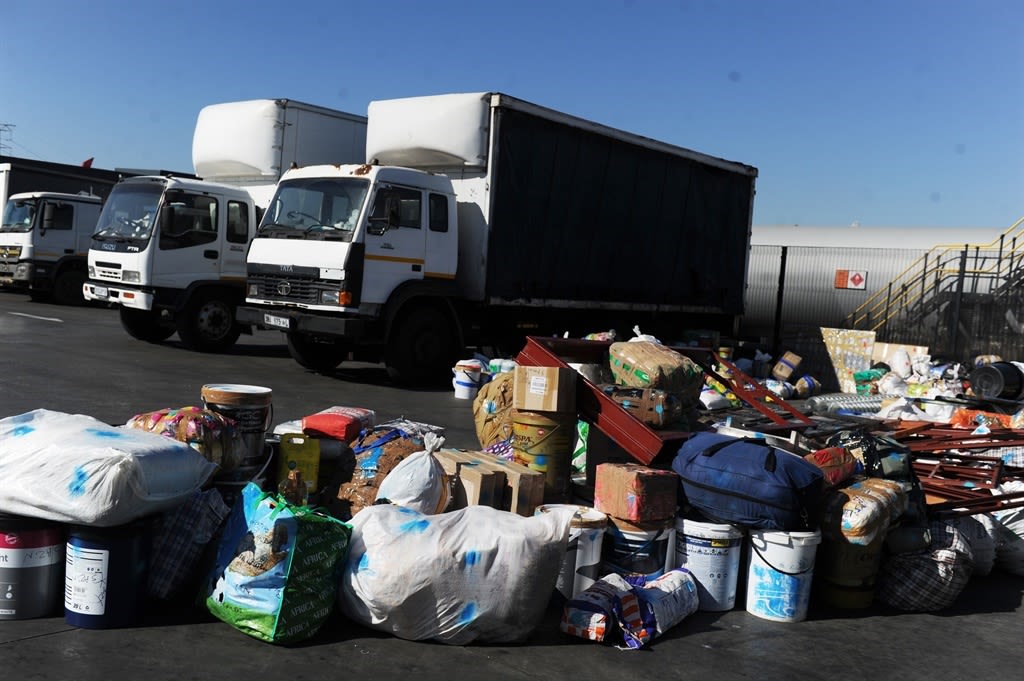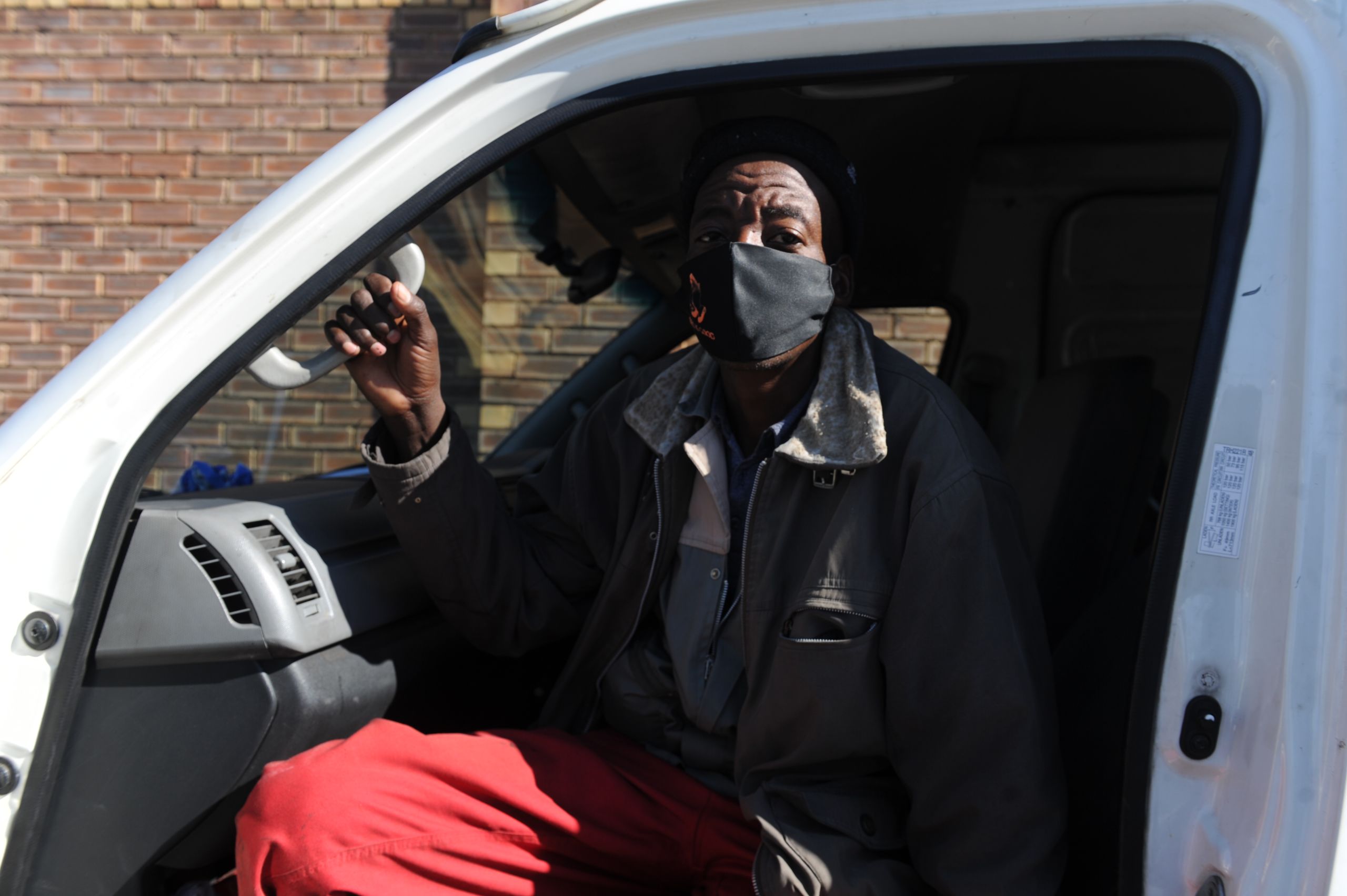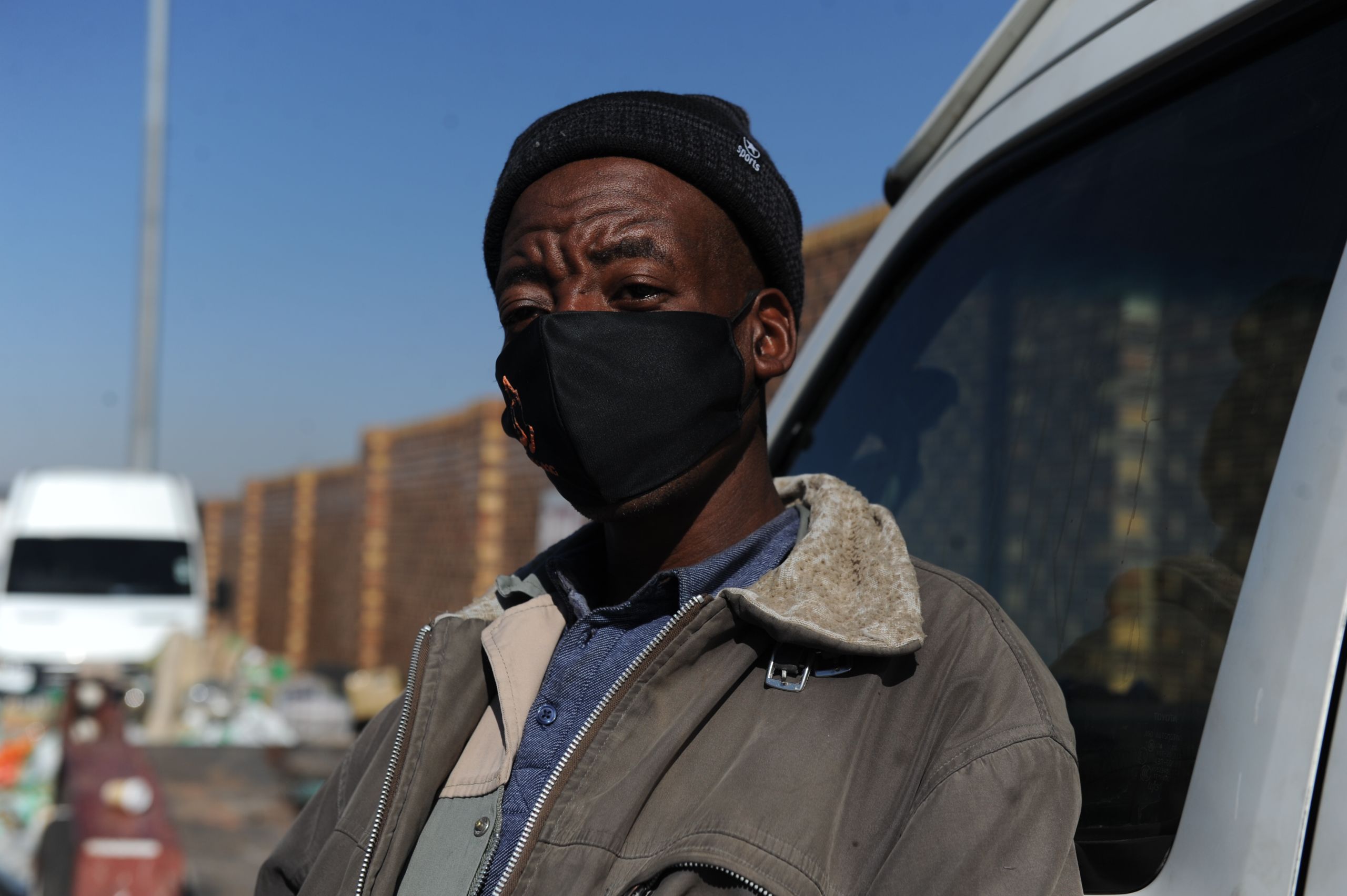A father’s anguish: ‘My children back home are hungry’

Sitting inside the City Deep Truck Stop premises in Johannesburg, Nkululeko Moyo and Mthandazo Shongwe say they would rather be safe than sorry.
The two taxi drivers, whose source of income has already been “negatively affected by the [Covid-19] national lockdown”, say the strike by truck drivers “has only made things worse”.
“My children back home are hungry,” says Moyo, who hails from Zimbabwe.
Packaged food, meant to be taken to Zimbabwe, is stacked on the floor inside the truck stop because there is no transport to take them to their destination.
Moyo, a father of five, makes money by buying groceries here for “people in Zimbabwe, packaging and transporting the parcels to various households” back home.
“Because of the lockdown we have not been able to travel across borders [since March], meaning we have not been able to make deliveries or feed our families,” he says.
Foreigners are not safe [in this country]. My nationality will always put me at risk.
“I come to South Africa and purchase the food in bulk and deliver it to people in Zimbabwe and they pay me for that. After the lockdown, since I could not make the deliveries, I would pay a truck travelling from here to transport the goods for me.”
According to Moyo, he made as much as R20 000 a month when business was good. “I have to make deliveries every month and people should receive their goods by the first week of every month. As we sit here, there is a truck that was meant to come and collect these food parcels but the driver said he was too scared to come to the depot because of the strike,” he says.
“Now that the strike is under way, and we don’t know how long it will last, I will lose a lot of money because the food left in the sun will get ruined and I will have to pay people their money back.”
Shongwe, who is sitting in the driver’s seat of the car, is in the grocery delivery business like Moyo, and says he hopes to one day “become a truck driver”.
“I am half South African and half Zimbabwean because I was born here but my father is Zimbabwean,” he says. “I think our best bet now would be to hire a truck that is owned or driven by a South African to ensure that our business continues.
“Like he said,” Shongwe says, gesturing to Moyo, “these parcels are supposed to be collected by a truck but the driver will not risk his safety by coming to the depot because he is a foreign national.”
The pair’s sentiments and fears are because the strike by truck drivers which started on Tuesday morning to “ensure that South African companies stop hiring foreign nationals”.
Truck drivers arrived outside the truck stop at 6am to prevent trucks from operating, and the trucks at the facility didn’t move the whole day.
Mandla Mngomezulu, All Truck Drivers Foundation secretary, told City Press: “We as truck drivers are facing a huge problem of South Africans not being hired by local trucking companies because they [the companies] would rather hire foreign nationals.”
Shongwe says he is aware that many trucking companies hire foreign nationals, leaving South Africans unemployed.
He points to the trucks at the City Deep Truck Stop, which have not moved all day, and says: “You might find that 90% of the trucks here are driven by foreign nationals. Right now there is nothing we can do.”
Truck drivers have embarked on a "national strike" against all trucking companies to remove non-South African drivers and replace them with local drivers#TruckDriversStrike pic.twitter.com/mmJ561KHPK
— Palesa Dlamini (@PalesaDlamini_0) July 7, 2020
But, Shongwe adds that a large number of foreign nationals currently in South Africa have families back home. “They have people who are dependent on them because they are in this country for work.
“They in turn depend on us to transport their groceries back home to their families. So this strike has a ripple effect. It is about more than just the truck drivers,” he says.
“It [the drivers’ strike] affects us too because if this food gets ruined, I have to pay out of my own pocket and my family suffers too.”
Adds Moyo: “Foreigners are not safe [in this country]. My nationality will always put me at risk.”
Last month, truck drivers announced that they would embark on a nationwide strike in protest. They want to force trucking companies to fired non-South African drivers and replace them with local drivers.




